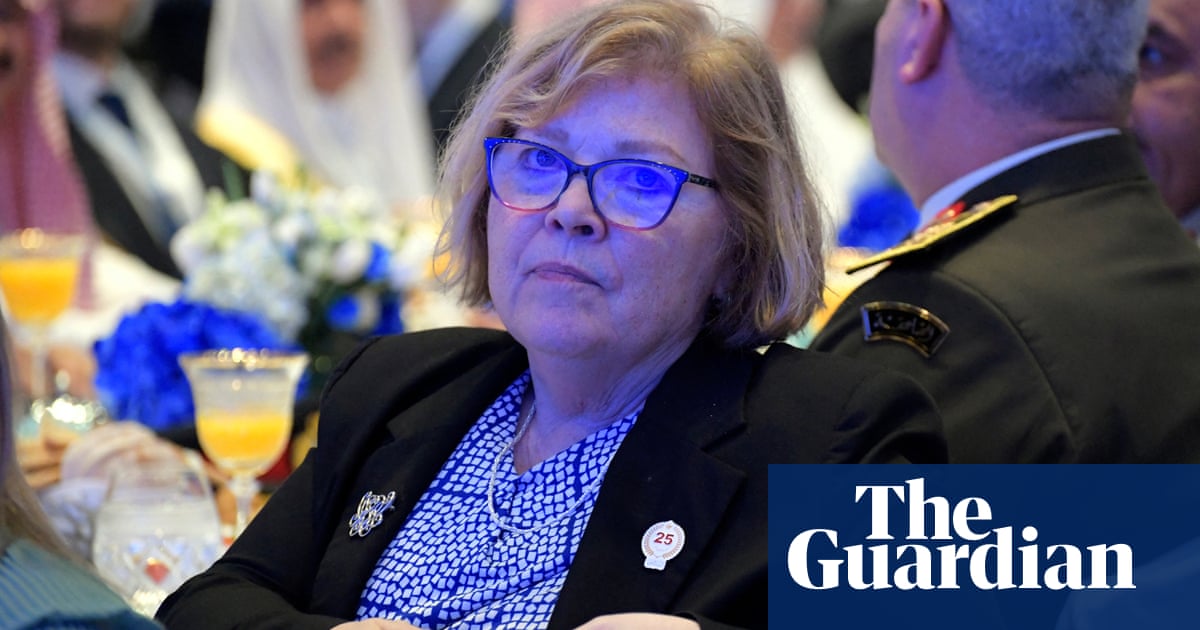A senior delegation of US diplomats has arrived in Syria to speak directly to the new Islamist-led rulers, hoping to encourage a moderate, inclusive path and to seek information on missing Americans.
It is the first formal US diplomatic mission to Damascus since the early days of the brutal civil war that broke out in 2011 and culminated in a surprise lightning offensive that toppled longtime ruler Bashar al-Assad this month.
The diplomats will meet representatives of victorious group Hayat Tahrir al-Sham (HTS) – which is designated a terrorist group by Washington – as well as activists, civil society and members of minority groups, the state department said on Friday.
The US officials will speak with Syrians about “their vision for the future of their country and how the United States can help support them,” a state department spokesperson said.
The delegation includes Barbara Leaf, who is the top state department official for the Middle East, and Daniel Rubinstein, a veteran US diplomat in the Arab world who is being put in charge of engagement on Syria, the spokesperson said. Also present is Roger Carstens, the US point man on hostages, who has been seeking clues on missing Americans including Austin Tice, a journalist who was kidnapped in August 2012.
The trip comes a week after secretary of state Antony Blinken said the US had been in direct contact with HTS as he toured Syria’s neighbours.
At talks in the Jordanian resort of Aqaba, western and Arab powers as well as Turkey jointly called Saturday for an “inclusive, non-sectarian and representative government” that respects the rights of all of Syria’s diverse communities.
HTS has roots in al-Qaida, causing the US to keep a distance throughout the civil war even while Washington also sought to isolate the more secular Assad, whose family’s dictatorship ruthlessly suppressed dissent for half a century.
Since the fall of Assad, HTS leader Ahmed al-Sharaa, previously known by his nom de guerre Abu Mohammed al-Jolani, has struck a conciliatory tone, calling for Syrian unity, the protection of minorities and the disbanding of rebel factions. Blinken has said it is too early to assess Jolani’s sincerity and that any sanctions relief would depend on actions.
“There are no guarantees at all. We’ve seen too many times one dictator can be replaced by another,” Blinken told The Foreign Affairs Interview podcast on Wednesday.
“So this is fraught, but we know almost certainly that absent our engagement, absent our leadership, that’s the way it will go,” he said.
“We have a chance, and the Syrian people have a chance, if concerned countries, including the United States, work to move this in a good direction.”
No decision on removing the HTS terrorism designation is likely in the month until the return of president-elect Donald Trump, who has made clear that he does not want a heavy US involvement in Syria.
Trump has described Assad’s fall as an “unfriendly takeover” by Turkey, which has supported HTS and bitterly opposes Washington’s alliance with Syrian Kurdish fighters, who have cooperated in Washington’s paramount goal of keeping down the ultra-violent Islamic State group. World powers have moved quickly since Assad’s fall to revive diplomacy in Syria, whose war set off an exodus of migrants that rocked western politics.
Sharaa on Monday met with the UN envoy for Syria, Geir Pederson, and a day later with a German delegation. French diplomats returned to their embassy in Damascus, raising the tricolor flag for the first time since 2012. The US closed its own embassy in Damascus in February 2012 and has made no immediate move to reopen it, with the Czech Republic representing US interests in the country.
∎